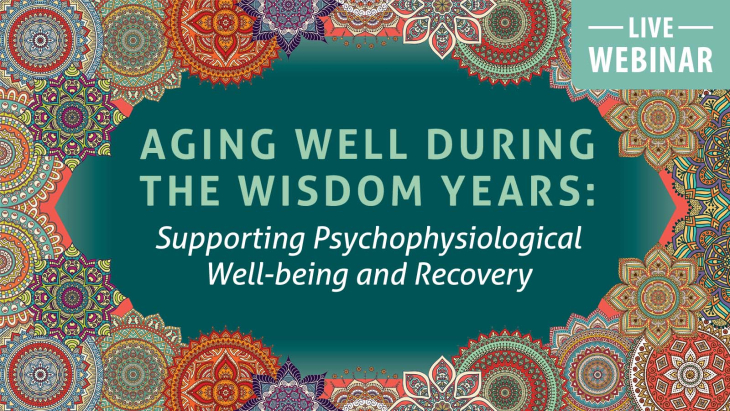Aging Well during the Wisdom Years: Supporting Psychophysiological Well-being and Recovery
Feb 2, 2024 Closed Mental Health

Description
Generations currently moving into their elder years are enjoying greater health and longevity while often holding expectations for vibrant, healthy, and active lifestyles. Learn to meet the needs of elders with vitality through individualized treatment adaptations and evidence-based interventions to address mood, brain, and chronic pain challenges. Drawing from neuroscience, polyvagal theory, and contemplative approaches, join us to integrate strategies that support your aging clients in transmuting losses into strengths during the elder years while increasing resilience and enhancing overall health and well-being.
Join Dr. Alvis for an informative, experiential seminar to gain important knowledge and skills that will help your elder clients thrive. Take home brief interventions designed to transform lives and enhance treatment outcomes.
Registering 5 or more participants with one payment?
Group Rate Available: $135/person
Five or more from same agency, registering & paying at same time
(add $15 to fee if registering within one week of the event)
Please email us for instructions: MAHEC Registration
Target Audience
Mental Health Clinicians, including Psychologists, Social Workers, Counselors, Marriage and Family Therapists, Substance Use Counselors, Nurses, and others interested in this topic
Objectives
Upon completion of this seminar, participants will be able to:
- Demonstrate how a polyvagal-informed approach can be employed to address mood and cognitive symptoms while also enhancing well-being.
- Analyze and explain how intersectionality influences ageism to assist in debunking stereotypes.
- Apply 3 steps for enhancing willpower and motivation.
- Create an individualized energy allocation plan to increase functioning for individuals with chronic pain.
- Apply a mindfulness-based grief model to help clients acquire a new perspective on loss.
- Articulate methods by which polyvagal-informed, contemplative-based approaches can be integrated with CBT to improve clinical outcomes.
Faculty
- Debra K. Alvis, PhD, MMT, C-IAYT